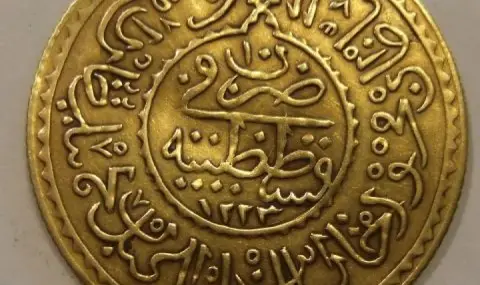On April 18, 1840, the Bulgarians began to pay tithe to the Sultan. The last few Bulgarian governments should think about this, which on the road and under the road emphasize that today's Bulgarians pay one of the lowest income taxes – 10%.
In 1840, the Sultan's government – The High Gate decides to carry out a tax reform. The goal is to fill the coffers to meet the deficits of the bloated administration. The step is bureaucratically efficient – unification of the tithe. This marks the beginning of a widespread description of the property and income of the Bulgarian population as a part of all nationalities in the Ottoman Empire.
It should be noted that the tithe is one of the main Bulgarian taxes, paid from the Middle Ages to the beginning of the 20th century.
According to him, the peasants were taxed with a tenth of the agricultural products and small livestock. It is a tax in kind, but at certain moments of the development of the Bulgarian state it was also collected in money.
After the fall of Bulgaria under Ottoman rule, the tithe was preserved, it was called yushur and it covered all agricultural works. After Liberation the tithe continued to be collected and was established as an important source of revenue by the Tithe Act of 1880.
But let's go back to the tax reform of the Ottoman reform. It will immediately support the struggle of the Bulgarians for their own exarchy and church independence from the Ecumenical Patriarchate.
The establishment of the Bulgarian Exarchate is the result of the long-standing struggle to win ecclesiastical independence. This became a fact after Sultan Abdul Aziz issued a decree on the Exarchate on February 28, 1870.
Until the liberation of Bulgaria, according to Article 10 of the firman, the Exarchate included all areas in which the Christian population wished to pass under its spiritual authority. Thus, the Ottoman Empire officially recognized the Bulgarian nation to the world and determined its ethnic boundaries. The Bulgarian nation is internationally legally recognized.
